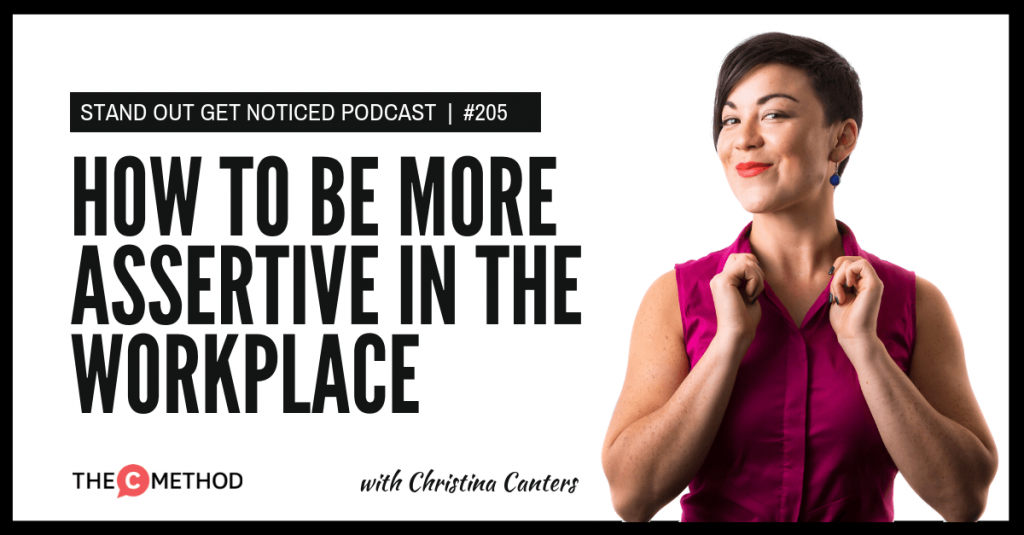One of my clients recently told me she received feedback that she ‘interrupted too much’ in meetings.
She asked how she could stop herself from interrupting. When we dug a little deeper, we found that it wasn’t the fact she was interrupting people, it was the WAY she was interrupting – she came across to her colleagues as abrupt and rude.
She said “I am naturally assertive, but if I am TOO assertive, it comes across as rude, and then people don’t like me. But then I don’t want to appear meek or lacking confidence either.”
Ahh, the conundrum faced by many high achieving women in the workplace. And I say women, because it is a well researched issue, this ‘double bind’ that women find themselves in. To move up in the workplace, the traits commonly associated with great leadership are stereotypically masculine traits, such as assertiveness and competitiveness.
This works well for men – when a man is assertive, he is perceived as being a great leader. On the other hand, when a woman is assertive, she is often perceived as being ‘bossy’, ‘abrasive’ and studies have shown that women who use aggressive communication in the workplace are seen as being less competent and deserving of lower pay.
Then, at the other end of the spectrum, if women don’t assert themselves, they are seen as being ‘too nice’, weak, and may be overlooked for promotions and other opportunities.
Now, this topic is a WHOLE other kettle of fish that I won’t be addressing in this episode – we’ll leave it for another time.
What I DO want to offer are ideas for how you can bring assertive communication into the workplace, so you can be noticed and get your ideas heard – without coming across as rude or bossy.
How to be assertive in the workplace
1. Shift your mindset
What limiting beliefs do you have about being assertive in the workplace? Perhaps you think:
- If I speak up, I will come across as rude
- If they don’t like my idea, it means they don’t like me.
- If they don’t like my idea, it means I don’t know my stuff, or I don’t have anything of value to offer.
- If I speak up, it will create conflict.
- Who am I to speak up? I’m just a _______ .
Work on shifting these limiting beliefs to:
- My ideas are just as valid and worthy as other people’s
- If they don’t like my idea, it’s a reflection on them, not me
- I CAN be assertive AND be likeable at the same time
2. Ground yourself
People with presence are present. When you physically ground yourself and are more connected to your body, you will be more connected to your message and your words will naturally have more impact. Be aware of how you are seated right now. Feel your feet on the floor, your legs on the seat. Give your leg muscles a squeeze. Find your breath. Be aware of your surrounds.
Work on bringing this mindfulness into your day to day life. You may very well find you are more focused, relaxed and calm when you speak – which will help you come across as more confident and assertive.
3. Your body speaks louder than words
How you show up non verbally plays a key role in how you come across. Do you sit back in your chair? Do you cross your knees tightly? Where do you sit in meetings? At the back? If this is you, start showing up the way an assertive person does. Sit at the front of the meeting. Lean forwards slightly in your chair. Place your hands on the table, no underneath. Show through your non-verbals how engaged you are. This way, you develop presence and assertiveness before you’ve even said anything!
4. Watch your tone
It’s common for Australians to put an upward inflection at the end of our sentences, making us sound like we’re questioning everything. I challenge you to be aware of this habit. Once you are away, work on placing a downward inflection at the end of the sentences.
So instead of: “Hi, I’m Christina? Thanks for joining us today? We have important things to discuss?”, it sounds like: “Hi, I’m Christina. Thanks for joining us today. We have important things to discuss.”
5. Stop using apologetic, qualifying & permission words
I’ve talked about this many times on the podcast before. I bring it up again because it is so common and so deeply ingrained into how we speak it can be difficult to completely let it go.
To avoid coming across as aggressive, women will often use softening words like: “just”, “little”, “maybe”, “sort of”, etc. For example:
“Sorry, can I just have a moment of your time?”
“I just have a little idea…”
“I put together this little presentation for you….”
“Sorry, I just have a question about..”
“It’s sort of like…”
“I suppose…”
“I think…”
“I guess it’s because…”
Shift to:
“In my opinion…”
“From my experience with…,”
“I propose we…”
6. Create a bank of assertive phrases:
Practice these!!! Practice until they become second nature.
“Yes, I can find out for you. I’ll get back to you in 5 minutes.”
“Yes I’m happy to help, I have some time available at 1pm. Does that work for you?”
“Can I pause you there?” (learned from Nathalie Brewer of Yellow Lantern)
“That’s a great question, John. We don’t have that information right now, but I will find out for you.”
“Thank you for your contribution, those are great ideas. I am conscious of time, so let’s move on.”

Leave a Reply